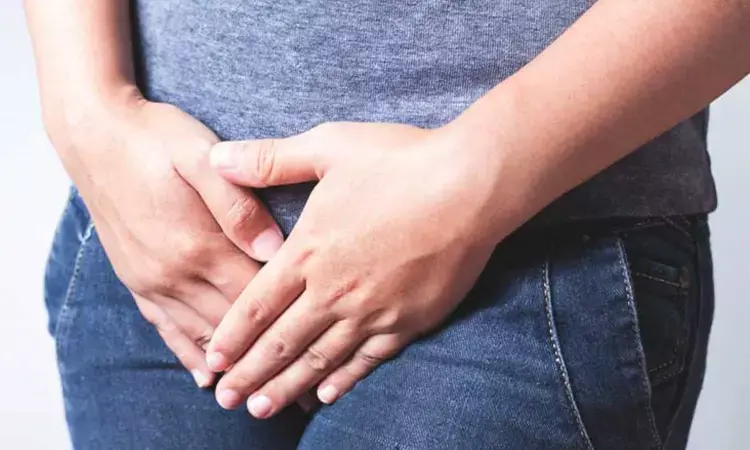- Home
- Medical news & Guidelines
- Anesthesiology
- Cardiology and CTVS
- Critical Care
- Dentistry
- Dermatology
- Diabetes and Endocrinology
- ENT
- Gastroenterology
- Medicine
- Nephrology
- Neurology
- Obstretics-Gynaecology
- Oncology
- Ophthalmology
- Orthopaedics
- Pediatrics-Neonatology
- Psychiatry
- Pulmonology
- Radiology
- Surgery
- Urology
- Laboratory Medicine
- Diet
- Nursing
- Paramedical
- Physiotherapy
- Health news
- Fact Check
- Bone Health Fact Check
- Brain Health Fact Check
- Cancer Related Fact Check
- Child Care Fact Check
- Dental and oral health fact check
- Diabetes and metabolic health fact check
- Diet and Nutrition Fact Check
- Eye and ENT Care Fact Check
- Fitness fact check
- Gut health fact check
- Heart health fact check
- Kidney health fact check
- Medical education fact check
- Men's health fact check
- Respiratory fact check
- Skin and hair care fact check
- Vaccine and Immunization fact check
- Women's health fact check
- AYUSH
- State News
- Andaman and Nicobar Islands
- Andhra Pradesh
- Arunachal Pradesh
- Assam
- Bihar
- Chandigarh
- Chattisgarh
- Dadra and Nagar Haveli
- Daman and Diu
- Delhi
- Goa
- Gujarat
- Haryana
- Himachal Pradesh
- Jammu & Kashmir
- Jharkhand
- Karnataka
- Kerala
- Ladakh
- Lakshadweep
- Madhya Pradesh
- Maharashtra
- Manipur
- Meghalaya
- Mizoram
- Nagaland
- Odisha
- Puducherry
- Punjab
- Rajasthan
- Sikkim
- Tamil Nadu
- Telangana
- Tripura
- Uttar Pradesh
- Uttrakhand
- West Bengal
- Medical Education
- Industry
Abrocitinib effective treatment option for lichen sclerosus

China: Abrocitinib may provide disease control in Lichen sclerosus (LS) patients; however, more extensive controlled trials are required for results confirmation, according to a research letter published in the British Journal of Dermatology.
By week 12, disease control was achieved in all patients, with a significant improvement in pruritus seen as early as week 2.
Lichen sclerosis is a condition with the characteristics of demarcated white atrophic scarring patches with a predilection for genital skin in both males and females. Treatment of LS patients remains challenging, and there is a need for safe and efficient treatment. Therefore, Chengbei Bao, Fujian Dermatology and Venereology Research Institute, China, and colleagues performed an open-label, single-arm study to assess the efficacy and safety of abrocitinib, a selective Janus kinase (JAK) 1 inhibitor, for Lichen sclerosus treatment.
The study included patients between 18 and 65 years old with a histopathological LS diagnosis. Those with previous use of JAK inhibitors or other systemic immunosuppressive treatment; lymphopenia (absolute lymphocyte count < 0.5 × 109 cells L–1); agranulosis (absolute neutrophil count < 1.0 × 109 cells L–1); severe bacterial or fungal infection; internal organ dysfunction; active hepatitis B virus infection or tuberculosis; and existing cancer were excluded.
The study included ten adult patients with biopsy-proven lichen sclerosus treated with once-daily abrocitinib 100 mg for four months. The patients stopped using topical calcineurin inhibitors and steroids at least four weeks before abrocitinib treatment.
The researchers found that all patients achieved disease control, defined as Investigator's Global Assessment score ≤1, by week 12, with a remarkable improvement in pruritus seen as early as week 2.
"Abrocitinib is a novel treatment that may provide disease control in patients with LS; however, larger controlled trials are needed to confirm these results," the authors concluded.
Reference:
Bao, C., Xu, Q., Xiao, Z., Wang, H., Luo, R., Cheng, B., Ji, C., & Gong, T. Abrocitinib as a novel treatment for lichen sclerosus. British Journal of Dermatology. https://doi.org/10.1093/bjd/ljad129
Dr Kamal Kant Kohli-MBBS, DTCD- a chest specialist with more than 30 years of practice and a flair for writing clinical articles, Dr Kamal Kant Kohli joined Medical Dialogues as a Chief Editor of Medical News. Besides writing articles, as an editor, he proofreads and verifies all the medical content published on Medical Dialogues including those coming from journals, studies,medical conferences,guidelines etc. Email: drkohli@medicaldialogues.in. Contact no. 011-43720751


